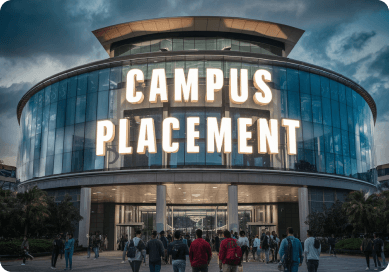Enter OTP



Braunschweig, Germany

Braunschweig, Germany

Cost Of Living

Undergraduate Fees International Students

Post Graduate Fees International Students

TU Braunschweig stands out as Germany’s oldest institute of technology, founded in 1745. Its biggest USP is its strong emphasis on applied sciences, interdisciplinary research, and close partnerships with leading industries such as Volkswagen, Siemens, and DLR. The university is located in the heart of Europe’s most research-intensive region, making it a central hub for engineering, automotive, and aerospace innovation. With renowned institutes like the Niedersächsisches Forschungszentrum Fahrzeugtechnik (NFF) and the Aeronautics Research Centre Niedersachsen (NFL), TU Braunschweig offers students unmatched exposure to practical and future-oriented learning.
Carl Friedrich Gauss, one of the most influential mathematicians in history, studied at what is now TU Braunschweig (the... View More
Carl Friedrich Gauss, one of the most influential mathematicians in history, studied at what is now TU Braunschweig (then the Collegium Carolinum) in the late 18th century. Often referred to as the “Prince of Mathematicians,” Gauss made groundbreaking contributions to number theory, astronomy, and electromagnetism. His time at the university helped lay the foundation for a career that shaped modern mathematics and physical sciences. View Less
Hans von Ohain, an engineering physicist and TU Braunschweig alumnus, is credited as one of the inventors of the jet eng... View More
Hans von Ohain, an engineering physicist and TU Braunschweig alumnus, is credited as one of the inventors of the jet engine. He developed the first operational jet engine independently of Britain’s Frank Whittle. Von Ohain’s early engineering education at the university contributed to his innovative thinking in aerospace propulsion and earned him international acclaim in aviation technology. View Less
Walter Bruch, who studied electrical engineering at TU Braunschweig, was the inventor of the PAL (Phase Alternating Line... View More
Walter Bruch, who studied electrical engineering at TU Braunschweig, was the inventor of the PAL (Phase Alternating Line) television broadcasting system. This system became the standard in many countries for decades. His pioneering work in television engineering was deeply rooted in the academic and technical foundations he acquired during his time at the university. View Less
Günter Wendt was a German-American aerospace engineer who also attended TU Braunschweig. He is best known for his role ... View More
Günter Wendt was a German-American aerospace engineer who also attended TU Braunschweig. He is best known for his role as the pad leader during the Mercury, Gemini, and Apollo space programs at NASA. Nicknamed the “Pad Führer” by astronauts, his meticulous attention to detail in launch pad operations was critical to the success and safety of American space missions. View Less
Heinrich Büssing, a mechanical engineer and entrepreneur, studied at TU Braunschweig and went on to establish the Büss... View More
Heinrich Büssing, a mechanical engineer and entrepreneur, studied at TU Braunschweig and went on to establish the Büssing company, a pioneer in the development of trucks and buses in Germany. His legacy in vehicle manufacturing and commercial transportation stems from the strong engineering principles taught at the university, making him a key figure in automotive history. View Less
TU Braunschweig spans multiple campuses—Central, North, and East—with over 2,000 designated learning spaces including computer labs, self-study rooms, and seminar areas. The newly opened Student House on Central Campus offers 160 flexible study workplaces, equipped with high-speed Wi‑Fi and power outlets, and open daily from 8 am to 10 pm.
With around 90 student associations and initiatives—including the engineering teams like Lions Racing, Akaflieg, and cultural groups like AkaBlas orchestra—campus life is vibrant and interdisciplinary. The Sandkasten initiative empowers students to propose and implement campus improvements, fostering a grassroots and creative environment.


The Career Service organizes workshops, company excursions, job fairs, and individual counseling to prepare students for internships and employment. Additionally, the Entrepreneurship Hub helps students develop startup projects and offers resources for technology-based business creation. Alumni networks and industry partnerships enable mentoring and job placement opportunities.
The below information is required while
completing the university application :
Higher Secondary School Certificate (12 years of education)
For Indian students: CBSE/ISC/State Board + 1 year university OR completion of Studienkolleg
University Entrance Qualification (HZB) equivalent
German Language Proficiency (mandatory for almost all bachelor programs)
TestDaF (min. 4x4), DSH-2, or equivalent
Entrance Exam or Studienkolleg (for non-EU students with non-equivalent school leaving certificate)
APS Certificate (for Indian, Chinese, Vietnamese applicants)
Application via uni-assist
Know moreTU Braunschweig enjoys a robust campus recruitment ecosystem, supported by close ties with global and German corporations. Major recruiters include Volkswagen, Bosch, Siemens, Airbus, DLR, ZF, and Continental. The university’s career service regularly organizes career fairs, employer presentations, internship days, and alumni talks to connect students with employers. Companies often recruit for positions in mechanical engineering, automotive systems, aerospace, IT, and environmental technology. Many students also secure thesis projects, internships, and working student roles that convert into full-time employment through these collaborations.



Over the years, TU Braunschweig has achieved significant educational and research milestones. It played a pivotal role in establishing the first wind tunnel in Germany, contributed to the development of the PAL television system, and helped pioneer autonomous driving research in Germany. The university is also part of the Niedersächsische Technische Hochschule (NTH), a strategic alliance of top technical universities in Lower Saxony. In rankings, TU Braunschweig consistently excels in engineering and natural sciences and is considered one of Europe's top research universities for mobility, energy, and sustainability.


TU Braunschweig reaffirmed its role as a member of the TU9 Alliance, a group of Germany’s nine leading technical universities. This status enhances international recognition and opens opportunities for global academic cooperation.
TU Braunschweig partnered with Volkswagen, Siemens, and other companies to launch the Open Hybrid LabFactory in Wolfsburg. This research center focuses on sustainable lightweight materials and production methods for vehicles, supporting Germany’s mobility and climate goals.
TU Braunschweig became a leading partner in the Battery LabFactory Braunschweig (BLB), which focuses on developing sustainable and high-performance batteries for e-mobility. This positioned the university as a key player in Germany’s energy and mobility transition.
In 2007, TU Braunschweig co-founded the Niedersächsische Technische Hochschule (Lower Saxony Institute of Technology) along with Leibniz University Hannover and Clausthal University of Technology. This initiative was aimed at fostering research collaboration and academic synergy across technical disciplines.
Carl Friedrich Gauss, one of the greatest mathematicians in history, studied at the university. His time at Braunschweig marked the beginning of a legacy of mathematical and scientific excellence associated with the institution.
TU Braunschweig is known for its cutting-edge research in mobility, aviation, pharmaceuticals, digitalization, and environmental sustainability. It houses over 120 institutes and research centers, including the Center of Pharmaceutical Engineering (PVZ) and the Battery LabFactory Braunschweig (BLB), which contribute to breakthroughs in energy storage and health tech. The university plays a central role in Germany’s Digital Rail and Future Mobility research initiatives. Moreover, it collaborates extensively with the German Aerospace Center (DLR) and the Helmholtz Association, fostering innovation that directly impacts industry and society.
As part of Germany's “Digital Rail for Germany” initiative, TU Braunschweig developed OpenTrack, a simulation-based research platform to optimize train schedules, increase railway safety, and improve efficiency. In 2016, it became one of the pioneering contributions toward smart rail transport solutions in Europe.
In 2012, TU Braunschweig participated in the SimTD (Safe and Intelligent Mobility - Test Field Germany) project, one of Germany's first major field trials in connected and autonomous driving. The university contributed to the development of vehicle-to-vehicle and vehicle-to-infrastructure communication systems that are now used in autonomous mobility.
In 2006, students and researchers from TU Braunschweig developed one of the early fully autonomous helicopter drone prototypes as part of their Unmanned Aerial Vehicles (UAV) research. This innovation helped drive progress in aerial surveillance, environmental monitoring, and rescue operations.
In 1908, TU Braunschweig built Germany's first wind tunnel, making it a national center for aerodynamic research. This invention enabled significant progress in aircraft design and testing, laying the groundwork for modern aerospace engineering in Germany.












Embark on your educational journey with confidence! Our team of admission experts is here to guide you through the process. Book a free session now to receive personalized advice, assistance with applications, and insights into your dream school. Whether you're applying to college, graduate school, or specialized programs, we're here to help you succeed.
